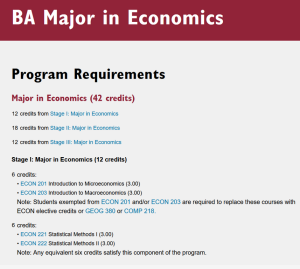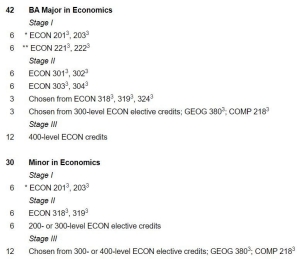notice
Academic Calendar gets a new look and improved functionality
It's now easier than ever to use the Undergraduate Calendar and the Graduate Calendar, thanks to a new look and improved funtionality.
The new system is the product of roughly two years of development and detailed consultations with members of the Concordia community on curriculum management software.
"We're very pleased with the results," says Sandra Gabriele, vice-provost, innovation in teaching and learning. "The academic calendar is such a key resource for the university community and this is a big step forward for improving the experience of consulting it."
Easier navigation is the main benefit for readers: you can now click on the hyperlinked name of a given course to jump to the course description.
 Hyperlinks allows users to jump between elements of a given section of the Calendar.
Hyperlinks allows users to jump between elements of a given section of the Calendar.
 Previously users browsed a section by scanning course descriptions as a whole.
Previously users browsed a section by scanning course descriptions as a whole.
Key info for students
The Calendar's main function is to outline academic programs and define academic regulations. When you enrol in courses at Concordia, you agree to be bound by the policies and procedures of the university, including those of your faculty, so it's important to familiarize yourself with that information as explained in the Calendar.
You can also use the Calendar to consult the specific requirements of your degree or certificate. It is your responsibility to ensure the courses you choose meet the program requirements. Consulting the Calendar, plus going for academic advising will help you make sure you're on the right track.
Official guidelines for advising
For the first time, the Undergraduate Calendar includes a section on academic advising, with a mission statement, plus outcomes for both advisors and students.
The new section will help students understand what they can expect to gain and learn from accessing advising, says Margaret Colton, co-chair of the Central Advising Working Group, which exists to champion effective academic advising at Concordia. "Our members' efforts to develop the guidelines should also prove helpful for staff and faculty to understand their roles and responsibilities as academic advisors," she notes.

